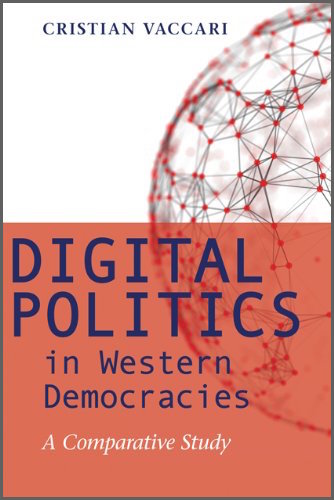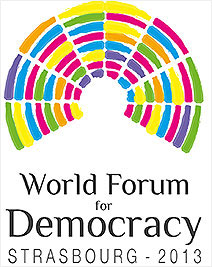Connectivity and Power: A Workshop
12 December 2013
Royal Holloway, University of London
We need to get a grip on what connectivity means and how we research it. In this workshop staff and PhD researchers from the New Political Communication Unit and the University of Glasgow will present very short pieces reflecting on what "connectivity and power" mean to them and how they are present in their research. Those participating share a number of overlapping research foci, methods and empirical cases. The day promises a series of fruitful exchanges that will help clarify these most difficult—and important—of terms.
Venue: International Building IN031 10am-1pm, IN032 1pm-3pm (we move halfway)
Schedule
9am-10am Coffee/tea on arrival in IN031
10am-11am Andrew Hoskins (Glasgow) on Connectivity, Ben O'Loughlin (Royal Holloway) responds; discussion.
11am-1pm Glasgow presentations: Stevie Docherty, Dounia Mahlouly, Matthew Wheavil
1pm-2pm Royal Holloway presentations: Billur Aslan, James Dennis, over a working lunch
2pm-3pm Andrew Chadwick (Royal Holloway): provocative thoughts, open discussion, next steps.
3pm Close
Abstracts
Stevie Docherty Power, Control and Connectivity in the 2011 English Riots
This paper explores aspects of connectivity and power in relation to the 2011 riots in English cities. Drawing on work around new communications media in crisis communications and disaster response (Palen 2008, Bruns et al. 2012), I ask how knowledge (as in information about unfolding events or emergencies) might be seen as a form of control. How might the constant potential or actual connection implied by connectivity affect this? Secondly, I consider the machine-computational meanings of power that have been largely ignored in studies of the riots so far. Many new communications media are computational media. Bringing the computational dimension back in may offer different and valuable perspectives on power and media.
Dounia Mahlouly No identity, no responsibility: redefining power in the connective age.
The relationship between power and connectivity is highly antithetic. Whereas a Foucauldian conception of power involves institutional structure, hierarchy, regulations and social cohesion; connective action is meant to be diffuse, unpredictable, unconstrained and driven by a hidden leadership. At this stage of the digital revolution, political action goes along with many forms of paradoxical behaviours. Activist organisations prove to have a significant political impact, while denying any form of political affiliation, and prosumers (Merrin:2008) sink into connective addiction, while protesting against the rise of the digital industry.
In this context, rethinking power from the perspective of connectivity involves determining whether the contradictions of connective societies are temporarily induced by the paradigmatic transition from traditional to connective socio-cultural patterns. Alternatively, this implies evaluating to what extent such inconsistencies are permanent and inherent to the new connective age.
Matthew Wheavil Connectivity and Power: The many faces of war memory
In this paper, I explore the relationship between cyber-commemoration and power in an age of connectivity, where multiple users communicate via multiple devices anywhere, any time. This increasing enmeshment of consumer and producer has arguably decreased the relevance of Jan and Aleida Assmann’s (2006, p.138) cultural memory. Once a coherent tool of the powerful elite, the use and re-use of war memory now appears more disorganised, diffuse and diverse in an environment subsumed by social media which is “messy and filled with flaws, bottom-up… in a state of becoming and ‘dissensual by definition.’” (Knudsen and Stage 2012, p.14) In light of this, I pinpoint a dichotomy between a harmonised old media ecology where communication of war memory is linear and predictable and a dissonant new media ecology where an “ongoing revolution” continually remakes and remoulds the dominant discourse of war. (Merrin 2008, [online]) I consider whether this dichotomy is overly rigid and simplistic and suggest that the context of any war commemoration is instrumental to its narrative, whether or not the media it is presented on is old or new.
Billur Aslan The Frontiers of the Internet: Can connective power bring a political change to authoritarian regimes?
The rise of networked movements in our era triggers debates about “power” that appear via the interactive communication on the Internet. According to Castells, these “Networked movements” or as Bennett and Segelberg refer “personalised action on the Internet” gave way to an emotional mobilisation among people triggered by outrage against blatant injustice and hope of a possible change. This hope that was raised by the connection of people helped them to involve in decision-making process of their own destiny. Hence, with the use of communication technologies such as texts, tweets, social network sharing, a connective power emerged and it enabled them to be part of the decision-making process. My research examines to what extent the connective power of the Internet users assists a political change. The interviews with Syrian and Egyptian activists denote that, while the connective power can entrench the solidarity in the movements and give way to a political change, the absence of political culture and experienced activists obstruct the connective power of the users and limit the capacities of digital technologies.
James Dennis The Power of Connectedness: Slacktivism, Social Media and Networked Participation
Slacktivism has become synonymous with a negative perception of the political value of social media. However, the critique is flawed by an overtly narrow focus; low-threshold interactions conducted online are not ineffective and narcissistic acts of slacktivism, but integral components within a scaled continuum of participation. In order to critically analyse the relationship between social media and political participation we must first develop a comprehensive understanding of the environment in which these new forms of social and political self-expression take place, what Jose van Djick describes as the “ecosystem of connective media”. By drawing upon in-depth ethnographic data, collected through a participant-observation of the UK-based hybrid mobilization movement 38 Degrees and diary research, this paper will argue that connectivity underpins these new forms of individualized political participation.
Note: participation in this workshop is by invitation only.
 Department of Politics and IR Seminar
Department of Politics and IR Seminar


 Ms Tanja AITAMURTO, Finland, Visiting Researcher at the Program on Liberation Technology at Stanford University
Ms Tanja AITAMURTO, Finland, Visiting Researcher at the Program on Liberation Technology at Stanford University  Mr Paul GUYOT, France, Co-founder and CEO of Semiocast
Mr Paul GUYOT, France, Co-founder and CEO of Semiocast Mr Mikael JUNGNER, Finland, Member of Parliament
Mr Mikael JUNGNER, Finland, Member of Parliament Mr Joonas PEKKANEN, Finland, Founder of Open Ministry
Mr Joonas PEKKANEN, Finland, Founder of Open Ministry


